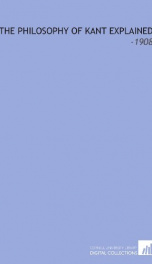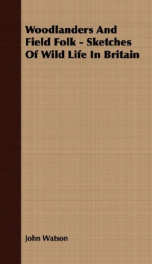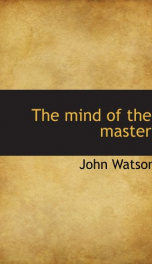the philosophy of kant explained

Purchase of this book includes free trial access to www.million-books.com where you can read more than a million books for free. This is an OCR edition with typos. Excerpt from book: open for the practical reason. We have shown that there is no contradiction in holding that nature is a mechanical systemincluding in nature our own volitions in their phenomenal aspectwhile yet freedom may also be true. Thus we have paved the way for the positive determination of freedom; a determination, however, which is possible only on the basis of the practical reason or moral consciousness. It is thus evident that the proof of our unavoidable ignorance of things in themselves is the necessary condition without which freedom and morality are inconceivable. The same line of argument, Kant maintains, enables us to show that the immortality of man and the existence of God may also be defended, provided these can be positively established on the basis of the practical reason. It is therefore essential, as he concludes, to deny a knowledge of God, freedom and immortality, if we are to defend the reality of these ideas; for, if we asserted knowledge in this case, we should at the same time be compelled to apply to them the categories of the understanding, and thus we should drag down the supersensible into the sphere of the sensible. Knowledge, then, of the supersensible we have not; but, as has been shown, this in no way prevents us from holding that such supersensible objects exist. The form in which we obtain assurance of the existence of these objects Kant calls faith (Glaube), in the technical sense of rational belief. INTRODUCTION. 1. Distinction of Pure and Empirical Knowledge. In the Preface Kant has given a general statement of the method and results of philosophical Criticism, indicating, in unmistakable terms, that his interest was neither in the sensible nor the supersensible alone, but in all that concerns human knowledge, action and belief. The special object...
Info about the book
Author:
Series:
Unknown
ASIN:
B002WU3AH6
Rating:
4.5/5 (2)Your rating:
0/5
Languge:
English
Users who have this book
Users who want this book
What readers are saying
What do you think? Write your own comment on this book!
write a commentif you like the philosophy of kant explained try:
Other books by this author
Do you want to read a book that interests you? It’s EASY!
Create an account and send a request for reading to other users on the Webpage of the book!





